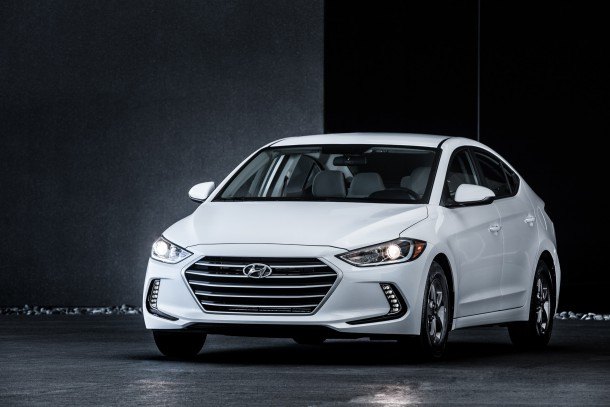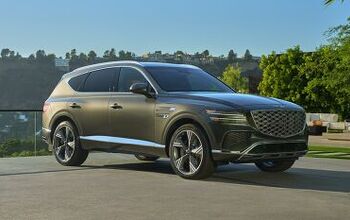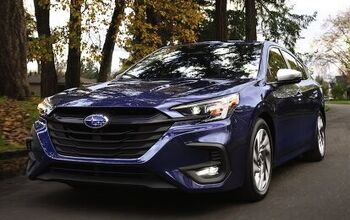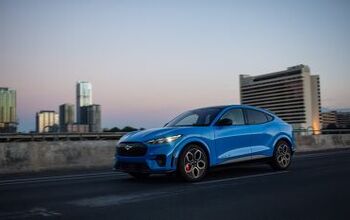Now With Less Thirst: Hyundai Reveals Gas-Sipping 2017 Elantra Eco

Hyundai sent its newly redesigned compact away for a lifestyle change, and it returned as the fuel-sipping Elantra Eco.
Sporting a new drivetrain and an EPA-estimated highway fuel economy rating of 40 miles per gallon, the 2017 Elantra Eco retails for $21,485 (after freight). City and combined ratings are 32 and 35 mpg, respectively.
The 2017 Elantra Limited we tested was no gas guzzler, often surpassing its 37 mpg highway rating, but the new Eco clearly has its competitors’ 40-plus mpg ratings in its sights. It’s also possible that Hyundai still has some lingering guilt over the not-yet-forgotten gas mileage scandal of four years ago.
Powering the Elantra Eco is Hyundai’s newest mill, a turbocharged and direct-injected 1.4-liter four-cylinder making 128 horsepower and 156 pounds-feet of torque. A seven-speed EcoShift dual-clutch transmission is the only mate for this engine.
Hyundai brags that the economy-minded Kappa engine reaches peak torque at 1,400 rpm. Despite its lowish horsepower rating, the 1.4-liter’s torque rating beats the stock Elantra’s 2.0-liter by 24 lb-ft.
The boost in low-end grunt, plus the quick-shifting gearbox, should be enough to motivate the Eco away from a standstill better than its not particularly quick stablemate, all while using less fuel.
How does the Elantra Eco’s mpg claim stack up against its competitors?
The Chevrolet Cruze (which shares a 1.4-liter displacement) is rated better on the highway (by 1–2 mpg) in all but the top-level Premier trim, which matches the Eco. The Hyundai beats all Cruze trims in the city by 2 mpg.
The Honda Civic — every compact car’s nemesis — beats the Elantra Eco on the highway by 1–2 mpg in automatic-equipped models, but only matches the 40 mpg rating with its manual 2.0-liter model. Again, the Elantra Eco is less thirsty in the city than the Civic, making the two model’s combined ratings the same (for automatics, anyway). The combined rating of the manual 2.0-liter Civic is 4 mpg lower.
Mileage aside, Hyundai saddled with Eco with a high level of amenities borrowed from the Elantra’s Limited trim, including a full suite of driver’s safety aids and convenience options.
[Image: Hyundai Motor America]

More by Steph Willems
Latest Car Reviews
Read moreLatest Product Reviews
Read moreRecent Comments
- Ravenuer Looking forward to it!
- Daniel J I love my mazda 6. It's getting harder and harder to drive it around where I live as municipalities fail to repair roads. SUVs are just easier to drive with all of the potholes.
- 1995 SC On the plus side, I found a sedan I want to buy
- Teddyc73 As I asked earlier under another article, when did "segment" or "class" become "space"? Does using that term make one feel more sophisticated? If GM's products in other segments...I mean "space" is more profitable then sedans then why shouldn't they discontinue it.
- Robert Absolutely!!! I hate SUV's , I like the better gas milage and better ride and better handling!! Can't take a SUV 55mph into a highway exit ramp! I can in my Malibu and there's more than enough room for 5 and trunk is plenty big enough for me!


































Comments
Join the conversation
Those aren't very good numbers for a 1.4t, are they? Chrysler gets an extra 30hp/30tq out of their 1.4t in the Dart without the DI?
Hyundais keep getting better over the years. That being said, I see more and more of them as rentals and fleet cars here in Montreal, is that the case elsewhere?